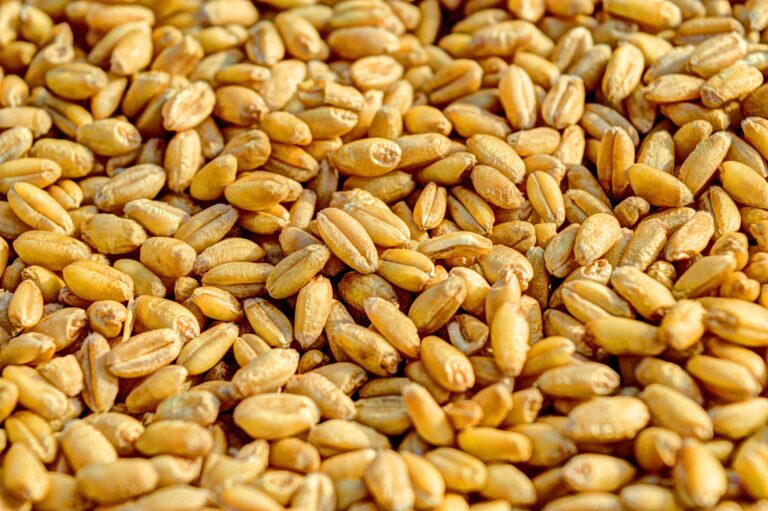Health Benefits of Pasta
Health Benefits of Pasta
Pasta is a popular food enjoyed in many parts of the world. It is versatile, easy to cook, and pairs well with a variety of vegetables, proteins, and sauces. While it has sometimes been criticized in modern diets for being a source of carbohydrates, when chosen wisely and consumed in moderation, pasta can be part of a healthy, balanced diet. Whether made from white flour, whole wheat, or other grains, pasta provides several health benefits.
- A Good Source of Energy
Pasta is rich in complex carbohydrates, which are broken down slowly by the body to provide long-lasting energy. This makes pasta a great meal option for people with active lifestyles, athletes, students, and workers. Unlike simple sugars, complex carbs give the body a steady supply of fuel, keeping you energized throughout the day. - Low in Fat and Cholesterol-Free
Most pasta varieties are naturally low in fat and cholesterol-free, which makes them a heart-healthy food when eaten in reasonable portions and paired with healthy toppings. When you avoid creamy sauces and instead add olive oil, herbs, or tomato-based sauces, pasta can be part of a diet that supports cardiovascular health. - Contains Essential Nutrients
Many kinds of pasta, especially whole wheat pasta, are good sources of several important nutrients, such as:
Iron – necessary for producing healthy red blood cells and preventing fatigue.
B vitamins (like folate and niacin) – which help in energy production and brain function.
Magnesium and selenium – which support muscle function and boost the immune system.
Some white pasta is also enriched with these nutrients during the production process.
- Promotes Satiety
Pasta, particularly when made from whole grains, is rich in dietary fiber, which helps you feel full longer. Fiber slows digestion and helps control hunger, making it easier to maintain a healthy weight. Feeling satisfied after eating helps prevent unnecessary snacking and overeating. - Supports Digestive Health
Fiber in whole grain pasta helps promote digestive regularity. It prevents constipation, supports healthy gut bacteria, and contributes to a healthy digestive tract. Choosing whole grain pasta over refined versions can significantly improve digestive function and overall gut health. - Helps Manage Blood Sugar (Whole Wheat Pasta)
Whole wheat pasta has a lower glycemic index compared to traditional white pasta. This means it doesn’t spike blood sugar levels as rapidly. For people with type 2 diabetes or those watching their blood sugar, choosing whole grain pasta in moderate portions can be a healthier option. It also helps reduce the risk of insulin resistance. - Versatility Encourages Healthy Eating
Pasta is incredibly versatile. You can prepare it with vegetables, lean proteins like chicken or fish, and healthy fats such as olive oil. This flexibility makes it easier to include various food groups in one meal, contributing to a balanced diet. Pasta meals can be designed to include nutrients from all the major food categories. - Can Be a Comfort Food Without Guilt
Pasta often serves as a comfort food, which plays a role in emotional well-being. When eaten in moderation and prepared with healthy ingredients, it can satisfy cravings without compromising health. The key is portion control and choosing nutrient-rich accompaniments like grilled vegetables or legumes. - A Budget-Friendly Source of Nutrition
Pasta is not only healthy but also affordable and widely available. It provides a cost-effective way to prepare satisfying and nourishing meals, especially for families and students. Whole grain pasta may be slightly more expensive than white pasta but still remains an accessible healthy food option. - Gluten-Free Options Available
For those with gluten intolerance or celiac disease, gluten-free pasta options made from rice, corn, quinoa, or chickpeas are now widely available. These options offer similar health benefits and make pasta an inclusive meal choice for people with dietary restrictions.
Conclusion
While pasta has often been labeled as a “bad” carbohydrate, in truth, it can be a healthy and nutritious part of your diet when prepared thoughtfully. Whole wheat pasta is especially beneficial, offering more fiber, vitamins, and minerals than its refined counterpart.
The health benefits of pasta include steady energy, digestive support, improved satiety, and the ability to pair well with a wide range of healthy ingredients. As with all foods, moderation and balance are key. Choose high-fiber pasta, watch your portions, and complement your meals with vegetables and lean proteins to get the most health benefits.





